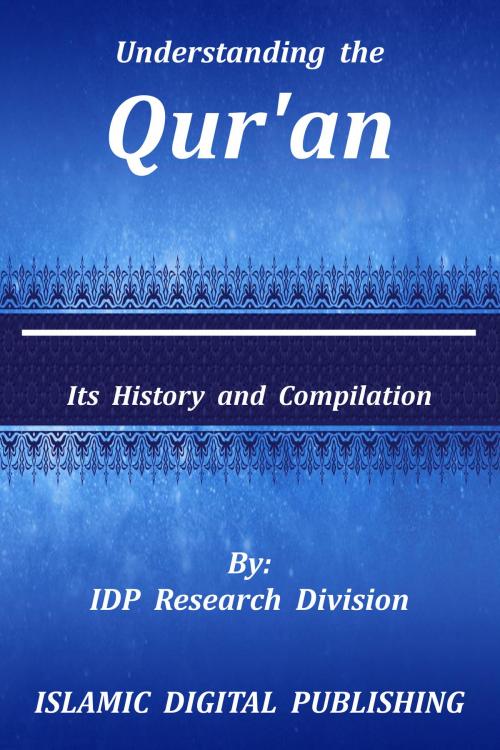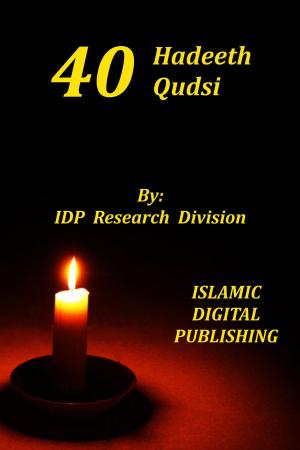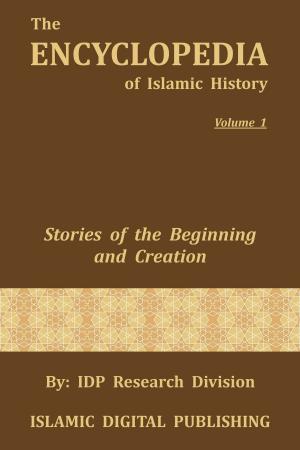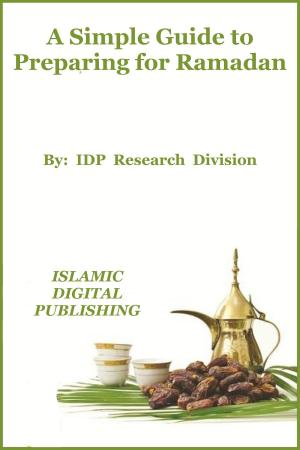Understanding the Qur'an (Its History and Compilation)
Nonfiction, Religion & Spirituality, Middle East Religions, Koran, Islam| Author: | IDP Research Division | ISBN: | 9781370110421 |
| Publisher: | IDP Research Division | Publication: | April 3, 2017 |
| Imprint: | Smashwords Edition | Language: | English |
| Author: | IDP Research Division |
| ISBN: | 9781370110421 |
| Publisher: | IDP Research Division |
| Publication: | April 3, 2017 |
| Imprint: | Smashwords Edition |
| Language: | English |
The Qur'an contains the revelations of Allah, the Creator and Sustainer of the Universe, to mankind. It is the message from God to man and therefore of utmost importance to us. To properly grasp a message, one needs
first of all to understand its contents exactly, and for this purpose one must study the Qur'an deeply and in detail. In fact, some people do spend their whole lives studying the Qur'an, reading and reflecting upon it and,
as they grow and develop, both physically and spiritually, they discover for themselves new meanings and implications.
Secondly, some special knowledge of the circumstances that surround the message is also necessary for fuller understanding of its meaning and implications. Although some part of this special knowledge can be
derived from the Qur'an itself, there remain other areas of knowledge that can only be discovered by wider study and research.
The aim of this book is to help towards a better understanding of the Qur'anic message by providing information on its setting, framework and circumstances. To a great extent it is a descriptive account of the
traditional subject of 'ulum al-qur'an. Some branches of 'ulum al-qur'an, such as the divisions of the text, style, literary form etc., have only been touched upon briefly, while others that seemed more important have
been dealt with in more detail. In particular such topics related to the understanding of the text (asbab al-nuzul, al-nasikh wa al-mansukh, etc.) have been treated more extensively while others, such as the 'seven
ahruf' or the 'Uthmanic writing, which are of benefit only to readers with a good knowledge of classical Arabic, have been introduced, but not elaborated upon.
We have restricted to present the generally-accepted views on the issues and, where no consensus exists, have referred to the most important of the divergent opinions. The basic aim in this 'Introduction' is generally
to inform the reader about the subject, and not to guide him overtly or covertly towards our own conclusions.
Numerous books have since been written on this subject, in most Muslim languages. However, until just recently there was no book in the English language on this subject. An average English reader who has no access
to an Arabic text like 'al-itqaan' had nothing to help him/her in understanding the Qur'an. This book is precise, brief, yet comprehensive. It deals with the traditional subjects such as meaning of revelation, history and
transmission of the text, asbaab un-nuzool, exegesis, etc. as well as issues of more recent origin, like recording of the Qur'an, orientalists' views, translation and others. The concluding chapter has valuable practical
advice for reading and studying of the Noble Book of Islam.
The Qur'an contains the revelations of Allah, the Creator and Sustainer of the Universe, to mankind. It is the message from God to man and therefore of utmost importance to us. To properly grasp a message, one needs
first of all to understand its contents exactly, and for this purpose one must study the Qur'an deeply and in detail. In fact, some people do spend their whole lives studying the Qur'an, reading and reflecting upon it and,
as they grow and develop, both physically and spiritually, they discover for themselves new meanings and implications.
Secondly, some special knowledge of the circumstances that surround the message is also necessary for fuller understanding of its meaning and implications. Although some part of this special knowledge can be
derived from the Qur'an itself, there remain other areas of knowledge that can only be discovered by wider study and research.
The aim of this book is to help towards a better understanding of the Qur'anic message by providing information on its setting, framework and circumstances. To a great extent it is a descriptive account of the
traditional subject of 'ulum al-qur'an. Some branches of 'ulum al-qur'an, such as the divisions of the text, style, literary form etc., have only been touched upon briefly, while others that seemed more important have
been dealt with in more detail. In particular such topics related to the understanding of the text (asbab al-nuzul, al-nasikh wa al-mansukh, etc.) have been treated more extensively while others, such as the 'seven
ahruf' or the 'Uthmanic writing, which are of benefit only to readers with a good knowledge of classical Arabic, have been introduced, but not elaborated upon.
We have restricted to present the generally-accepted views on the issues and, where no consensus exists, have referred to the most important of the divergent opinions. The basic aim in this 'Introduction' is generally
to inform the reader about the subject, and not to guide him overtly or covertly towards our own conclusions.
Numerous books have since been written on this subject, in most Muslim languages. However, until just recently there was no book in the English language on this subject. An average English reader who has no access
to an Arabic text like 'al-itqaan' had nothing to help him/her in understanding the Qur'an. This book is precise, brief, yet comprehensive. It deals with the traditional subjects such as meaning of revelation, history and
transmission of the text, asbaab un-nuzool, exegesis, etc. as well as issues of more recent origin, like recording of the Qur'an, orientalists' views, translation and others. The concluding chapter has valuable practical
advice for reading and studying of the Noble Book of Islam.















